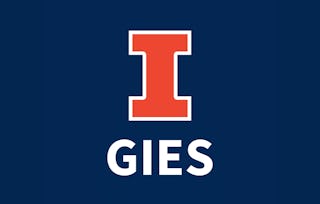This is the second part of a two-class sequence on financial accounting. FINANCIAL ACCOUNTING I & II, held consecutively, will provide you with a strong foundation to tackle many financial issues. Accounting I covers the basics, while Accounting II deals with more advanced topics. The topics discussed are “general” and apply to accounting practices worldwide – whether in the USA, Europe, Asia, etc.

Accounting 2

70 Bewertungen
Empfohlene Erfahrung
Was Sie lernen werden
Master the mechanics of financial accounting.
Understand the structure, functions, and interrelation of the basic financial statements (balance sheet, income statement, and cash flow statement).
Be able to perform a structured fundamental analysis of the financial statements to assess a firm’s profitability, liquidity, and solvency.
Be familiar with the accounting rules governing the recognition and measurement of key activities, events and transactions.
Kompetenzen, die Sie erwerben
- Kategorie: Equities
- Kategorie: Financial Market
- Kategorie: Revenue Recognition
- Kategorie: Depreciation
- Kategorie: Tax
- Kategorie: Financial Reporting
- Kategorie: Financial Statements
- Kategorie: Mergers & Acquisitions
- Kategorie: Accounts Receivable
- Kategorie: Profit and Loss (P&L) Management
- Kategorie: Balance Sheet
- Kategorie: Securities (Finance)
- Kategorie: Cash Flows
- Kategorie: Accounting
- Kategorie: Inventory Accounting
- Kategorie: Corporate Finance
- Kategorie: Asset Management
- Kategorie: Financial Accounting
- Der Fähigkeiten-Abschnitt ist eingeklappt. 10 von 18 Fähigkeiten werden angezeigt.
Wichtige Details

Zu Ihrem LinkedIn-Profil hinzufügen
39 Aufgaben
Erfahren Sie, wie Mitarbeiter führender Unternehmen gefragte Kompetenzen erwerben.

In diesem Kurs gibt es 9 Module
Why learn accounting? Because it is an integral part of finance, one of the most sought after and highly paid professions across the world. Financial literacy is extremely valuable from a personal and professional point of view, irrespective of what type of job you are doing.
Das ist alles enthalten
1 Video2 Lektüren
Accounts receivable, or selling on credit, is a hallmark of modern societies. Receivable entail complex estimations, and managerial judgement. They are under the discretion of management and involve significant flexibility. The learning objectives of this session are: Understand receivables; Understand the selling cycle; Understand how to report bad debt expense; Understand the percentage of sales method, and the percentage of receivables (i.e., balance sheet method); Understand receivable write-offs; Understand how receivables can be manipulated; Understand receivables turnover. Inventories constitute, often, the biggest line item a firm’s income statement (through Cost of Good Sold (COGS). Hence, understanding inventories is important, and leads to lean and efficient operations. The learning objectives of this session are: Understand inventories; Understand how inventories are converted to cost of goods sold; Understand the difference between raw materials, work-in-progress, and finished goods; Understand the lower of cost-or-market rule (LCM); Understand inventory write-downs (or write-offs, or impairment); Understand inventory management, and how reduced working capital conserves cash; Understand inventory turnover.
Das ist alles enthalten
3 Videos2 Lektüren5 Aufgaben
Long-term assets are at the heart of the productive capacity of business. Whether tangible, or intangible, such assets are at the heart of a firm’s productive capacity. The learning objectives of this session are: Understand long-term assets; Understand the differences between tangible and intangible assets; Understand the concepts of depreciation, amortization, and depletion; Understand impairment testing; Understand the financial statement implications of purchasing and selling assets; Understand the difference between capitalizing and expensing Understand the concept of fair values vs. historic costs; Understand how R&D is treated in financial statements; Understand fixed asset turnover; Understand how long term assets are manipulated.
Das ist alles enthalten
3 Videos2 Lektüren5 Aufgaben
Equity is what remains to the shareholders. Equity makes us happy and makes us buy stuff. Equity is the illusion of wealth when it is all (sometimes) only on paper. The objectives of this session are: Understand common stock and paid in capital; Understand treasury shares; Understand stock buybacks and dividends; Understand EPS.
Das ist alles enthalten
3 Videos2 Lektüren5 Aufgaben
Liabilities, bonds, and leases are at the heart of understanding liabilities. Too many firms went under because they did not understand the importance of liabilities, and its effect on firm risk. The objectives of this session are: Understand how leverage leads to risk; Understand the difference between operating and capital leases (financial leases); Understand bank loans, and its accounting; Understand bonds, and its accounting; Understand deferred revenue, contingent liabilities, and provisions.
Das ist alles enthalten
3 Videos2 Lektüren5 Aufgaben
Financial assets are the culprit of too many crises, and are especially important for banks. Moreover, financial assets help us understand how firms invest into bonds, stocks, and other investments. The objectives of this session are: Understand the difference between trading securities (or marketable securities), and equity investments (or investments into affiliates); Understand mark-to-market; Understand held-to-maturity instruments; Understand bonds issued at a premium, at par, and at a discount.
Das ist alles enthalten
3 Videos2 Lektüren5 Aufgaben
There are more than 40,000 mergers and acquisitions (M&As) yearly, globally. M&As are how companies grow, acquire vital resources, and control supply chains and product markets. The objectives of this session are: Understand M&A accounting; Understand the concepts of goodwill and minority interest; Understand goodwill impairment; Understand the consolidation process, and adjusting entries.
Das ist alles enthalten
3 Videos2 Lektüren5 Aufgaben
Taxes are something nobody likes (except, the government!). Taxes makes us cringe, taxes make us cry. Nonetheless, we all have to pay taxes, and we need to understand the rules and how to take advantage of the flexibilities in these rules. The objectives of this session are: Understand Taxes, tax expense, and tax paid; Understand how governments use taxes to incentivize corporate behavior; Understand the difference between temporary differences and permanent differences; Understand deductions, and additions, to taxable income; Understand why some corporations pay such low taxes.
Das ist alles enthalten
3 Videos2 Lektüren5 Aufgaben
Earnings management is probably the most common term when we hear about accounting. Fraud. And fraud is everywhere, unfortunately. The objective of this session is: Understand.
Das ist alles enthalten
4 Videos1 Lektüre4 Aufgaben
Dozenten


Mehr von Finance entdecken
 Status: Vorschau
Status: VorschauUniversity of Lausanne
 Status: Kostenloser Testzeitraum
Status: Kostenloser TestzeitraumUniversity of Illinois Urbana-Champaign
 Status: Kostenloser Testzeitraum
Status: Kostenloser Testzeitraum Status: Kostenloser Testzeitraum
Status: Kostenloser TestzeitraumUniversity of Illinois Urbana-Champaign
Warum entscheiden sich Menschen für Coursera für ihre Karriere?

Felipe M.

Jennifer J.

Larry W.

Chaitanya A.
Bewertungen von Lernenden
- 5 stars
90 %
- 4 stars
8,57 %
- 3 stars
0 %
- 2 stars
1,42 %
- 1 star
0 %
Zeigt 3 von 70 an
Geprüft am 5. Dez. 2024
The professor explains really well! The quizzes are also helpful and cover everything.
Geprüft am 19. Dez. 2024
A great and thorough course, covering a large variety of different topics in accounting.
Geprüft am 25. Mai 2025
Excellent content and delivery. It is a very useful course for accounting professionals!!! Thank you so much Unil!

Neue Karrieremöglichkeiten mit Coursera Plus
Unbegrenzter Zugang zu 10,000+ Weltklasse-Kursen, praktischen Projekten und berufsqualifizierenden Zertifikatsprogrammen - alles in Ihrem Abonnement enthalten
Bringen Sie Ihre Karriere mit einem Online-Abschluss voran.
Erwerben Sie einen Abschluss von erstklassigen Universitäten – 100 % online
Schließen Sie sich mehr als 3.400 Unternehmen in aller Welt an, die sich für Coursera for Business entschieden haben.
Schulen Sie Ihre Mitarbeiter*innen, um sich in der digitalen Wirtschaft zu behaupten.
Häufig gestellte Fragen
To access the course materials, assignments and to earn a Certificate, you will need to purchase the Certificate experience when you enroll in a course. You can try a Free Trial instead, or apply for Financial Aid. The course may offer 'Full Course, No Certificate' instead. This option lets you see all course materials, submit required assessments, and get a final grade. This also means that you will not be able to purchase a Certificate experience.
When you purchase a Certificate you get access to all course materials, including graded assignments. Upon completing the course, your electronic Certificate will be added to your Accomplishments page - from there, you can print your Certificate or add it to your LinkedIn profile.
Yes. In select learning programs, you can apply for financial aid or a scholarship if you can’t afford the enrollment fee. If fin aid or scholarship is available for your learning program selection, you’ll find a link to apply on the description page.
Weitere Fragen
Finanzielle Unterstützung verfügbar,

